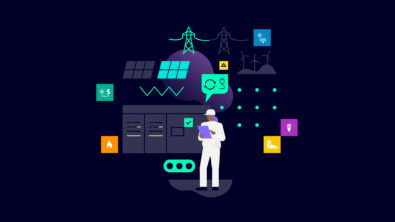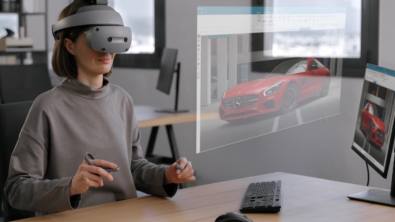Sustainability is the future for industry

Sustainability is no longer a trend across industry, it has become a primary concern as companies adopt net-zero goals for carbon and carbon-equivalent emissions to reduce their environmental impact. Whether that shift was foisted, altruistic, or somewhere in between, companies around the world are working to take accountability of their ecological impacts and follow through on the commitments. And regardless of where a company might lie on the sustainability journey, the strategies for success can seem challenging and costly. But a closer look at the reasons driving a sustainability transition shows that companies investing in sustainable operations are investing in their own long-term success.
Looking at the motivation
There are three important drivers to look at when talking about the sustainable transition for industry – government regulations, financial incentives, and consumer social awareness. Each impacts a business in different ways and are doing so more and more towards sustainable production and manufacturing.
- Regulations create benchmarks for what companies need to do better, the Corporate Sustainability Reporting Directive (CSRD) in the EU requires businesses meet reporting guidelines to stay operating in the region
- Incentives are the carrot to the regulatory stick, and can come in the form of government programs to shift operations to sustainable processes or come about as increased investment opportunities from ESG funds and a shifting financial market
- The last, and maybe most important, is growing social awareness of the problem in not going sustainable – customers, suppliers, investors, and shareholders have a deeper understanding of environmental issues which is shifting the status quo and their power is that of the market, where governments and institutions find their sticks and carrots
First thought, not afterthought
To not just accept these changes, but make them a business driver, requires manufacturers to think about sustainability in tandem with cost, quality, and time. It needs to be one of the first thoughts when developing a new project. The processes involved in making a business sustainable are too engrained in everyday operations to think of them as a last-minute balancing. Sustainability needs to start at the beginning to achieve new standards of efficient and ecological operations in a competitive position. And one of the best ways for achieving this is through digitalization.
To overcome the complexity of new regulations and standards, it is critical to define these in the digital twin. This not only enables a better understanding of interacting or overlapping requirements, it makes it easier to update them as new regulations are solidified. A business could even simulate different outcomes of a legislative body’s decision, to have a plan in place for how to change the business to meet requirements or capture incentives.
It is also important to collect as much valuable data as possible on operations. That data can help earn new contracts by companies looking for complete traceability. It also helps the company plan their path forward with future development and the best roadmap for their operations. But this may also require a holistic view of the lifecycle through collaboration and cross communication. Because almost no businesses work in complete isolation, cooperation on sustainability is paramount – helping your suppliers go sustainable helps your business too.
The green future of industry
The digital twin of the product and production, established in the beginning, helps engineering teams and the entire company achieve their cost, sustainability, and time-to-market goals. But only if you are constantly gathering data across the organization. That enriches your collective intelligence on sustainable production. To then combine the real and digital enhances design exploration, even on aggressive schedules, with sustainability at the core. You can simulate, innovate, and create modern designs prioritizing the positive environmental impacts under a variety of situations and requirements.
As companies invest in the development of eco-friendly products and strategies, they will reap the rewards from increased consumer confidence, financial incentives, greater resiliency, and the ability to drive profound social change. But getting there requires commitment greater than tacking sustainability onto existing operations and products. The businesses that successfully transition to sustainable production will do so with a fundamental shift of perspective – integrating sustainability to the core of the product and production lifecycle.
To learn more about this topic, you may want to read our Tech Briefs article written on the same subject, by Eryn Devola Head of Sustainability at Siemens Digital Industries and Dale Tutt Vice President of Industry Strategy at Siemens Digital Industries Software.
Siemens Digital Industries Software helps organizations of all sizes digitally transform using software, hardware and services from the Siemens Xcelerator business platform. Siemens’ software and the comprehensive digital twin enable companies to optimize their design, engineering and manufacturing processes to turn today’s ideas into the sustainable products of the future. From chips to entire systems, from product to process, across all industries. Siemens Digital Industries Software – Accelerating transformation.
For more information on Siemens Digital Industries Software products and services, follow us on LinkedIn, Twitter, Facebook and Instagram.


